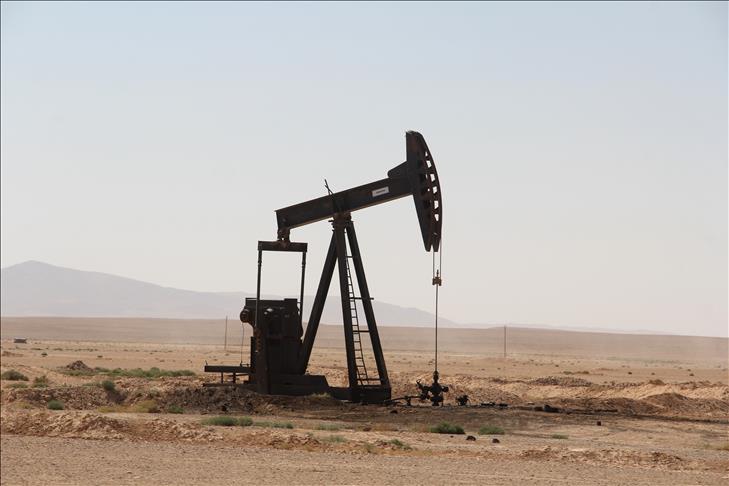
By Kingsley Kobo
ABIDJAN
Authorities in Ghana and Ivory Coast are seeking a peaceful solution to a lingering boundary dispute set off by the discovery of vast oil reserves in a maritime area between the two West African countries.
"For now, I can't say who legally owns the disputed field. We are working on several proposals, which are being kept secret until the whole issue is finally resolved," Ghana's Deputy Minister for Land and Natural Resources Barbara Serwaa Asamoah told Anadolu Agency during a recent visit to Ivory Coast.
Both countries claim ownership of the territory, initially thought to belong to Ghana, which had exclusive possession of the area.
When Ghana found oil in 2007 and began production in 2010 at the Jubilee Field – located in the Atlantic Ocean 60km off Ghana shore – Ivory Coast petitioned the U.N. to complete the demarcation of its maritime boundary with Ghana.
International experts had suggested then that Ivorian authorities believed the Ghanaian field could extend into Ivory Coast's territory.
However, tensions escalated in April 2013, when Ivory Coast announced it had struck oil in an area adjacent to Jubilee Field – Ghana's largest oil field – and sent a correspondence to the government of Ghana casting doubt on the existing median line that divides both countries' waters.
"We wanted to be sure and know exactly where we stand and what we were doing," Ivory Coast Mines and Energy Minister Adama Toungara told AA.
"That was why we informed the U.N., to be in line with international conventions," he said.
Ghana and Ivory Coast share a 640km terrestrial border.
Both countries are signatories to the U.N. Convention on the Law of the Sea (UNCLOS), which regulates navigational rights and territorial sea limits, among other things.
But to date, there are no pending cases concerning the Ghana-Ivory Coast maritime border dispute at the International Court of Justice or the International Tribunal for the Law of the Sea.
The governments of both countries set up a commission in November to come up with technical solutions to end the dispute over the area – which reportedly contains reserves of 2 billion barrels of oil and 1.2 trillion cubic feet of natural gas, according to official statistics from both countries.
"June 2014 is the deadline for the commission to submit its conclusions," Ghana's Asamoah told AA.
"Then the heads of states of both countries – John Dramani Mahama of Ghana and Alassane Ouattara of Ivory Coast – will jointly announce the final outcome."
Ivory Coast is proposing a bisectional procedure, which means the equal sharing of the field, while Ghana wants the equidistance of the field from both borders to be established first, according to the Ivorian Ministry of Mines and Energy.
"All I can assure the Ghanaian and Ivorian public is that we are working hard to come up with a mutual agreement that will suit the interests of both parties," said Asamoah.
Ghana is the second biggest West African client of Ivory Coast after Nigeria.
Since 2010, Ghana has been importing from Ivory Coast food products such as palm oil, yams, banana and other consumer products worth $115 million a year, representing 4.3 percent of Ivory Coast’s total export, according to Ivory Coast ministry of commerce.
In 2013, Ivory Coast imported from Ghana goods worth $22 million such as rubber and chemical products, lime plaster and cements.
Ambitions
Both Ghana and Ivory Coast are planning to boost their oil production in coming years, hence the struggle to lay claim to the disputed area, said Aristide Gnaore, an independent natural resources researcher.
"Both nations had been exporting cocoa, coffee and gold, but they are now keen on diversifying their economies and oil is a worthy and available option," he told AA.
Ghana produces between 110,000 and 115,000 barrels of oil per day, but wants to raise this figure to 240,000.
Ivory Coast, meanwhile, pumps between 37,000 and 40,000 barrels of oil per day, with hopes of reaching 200,000 barrels a day by 2018.
"I think both countries can choose to cooperate to end this matter," Stanley Annorbaah, senior lecturer at the department of mines at the University of Ghana in Legon, told AA.
"The disputed field can be explored and developed together under joint management," he added.
"Oil revenue could be shared on agreed terms for the benefit of the populations of both nations," said Annorbaah.
"It's better than one country wanting to claim it all."
Anadolu Agency website contains only a portion of the news stories offered to subscribers in the AA News Broadcasting System (HAS), and in summarized form. Please contact us for subscription options.

